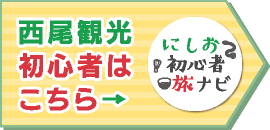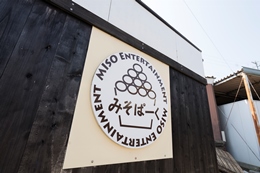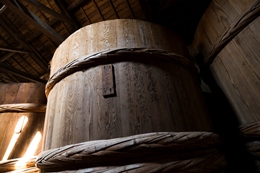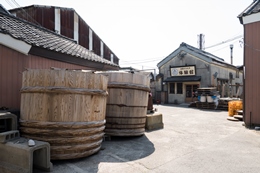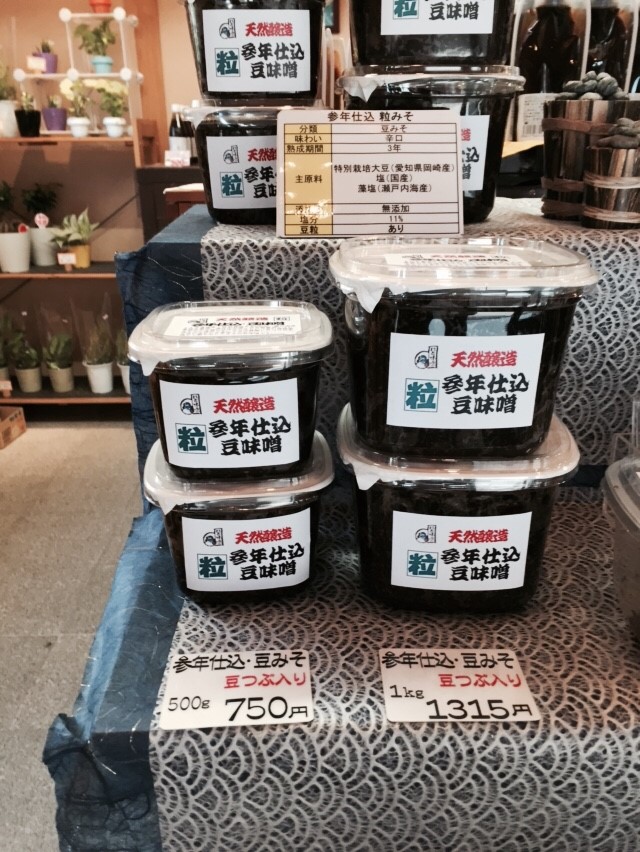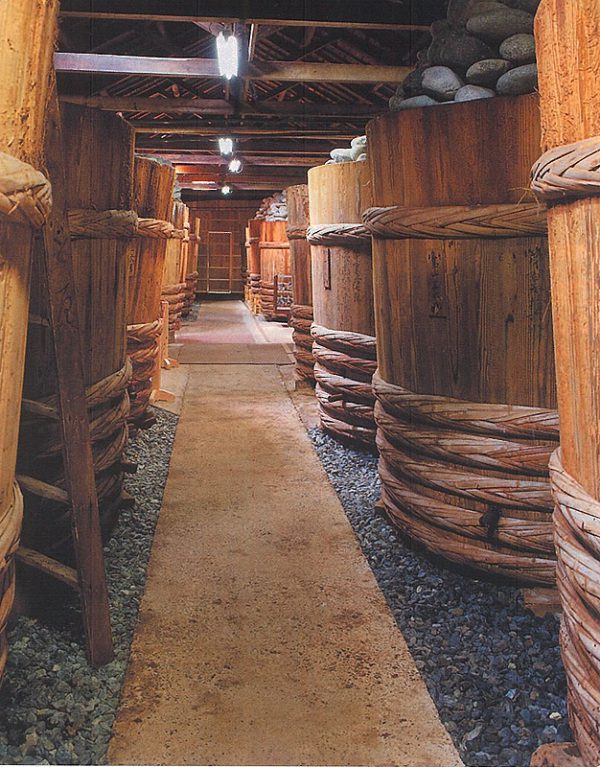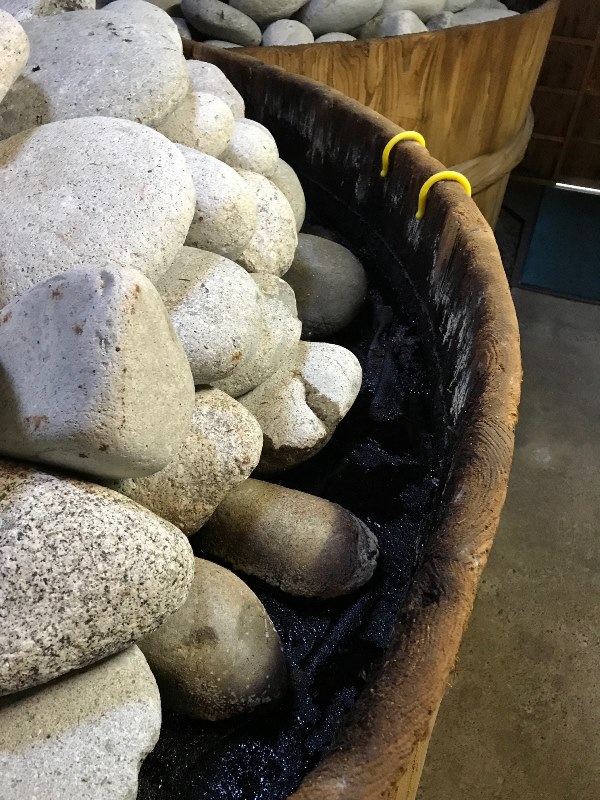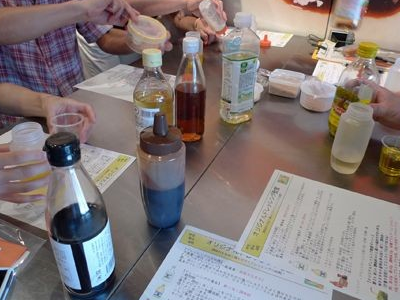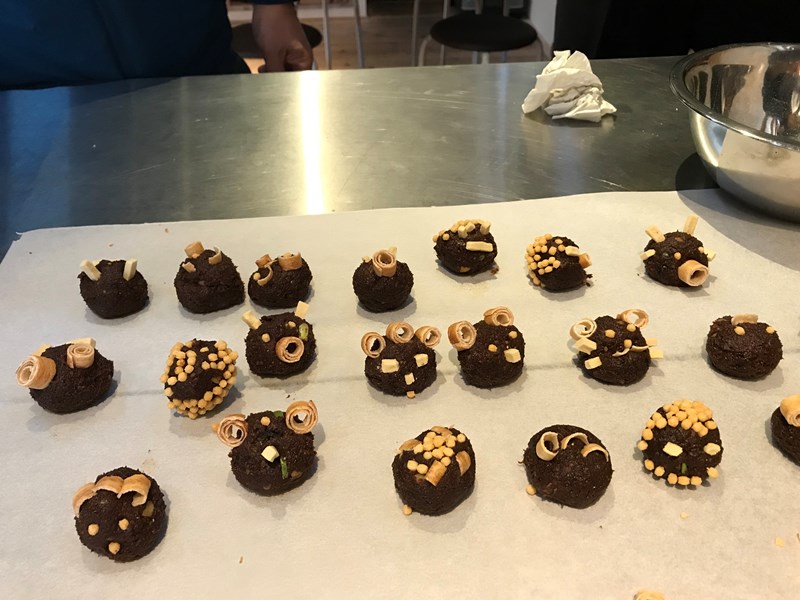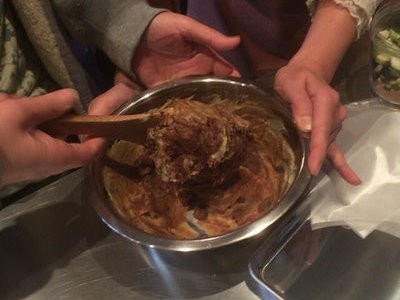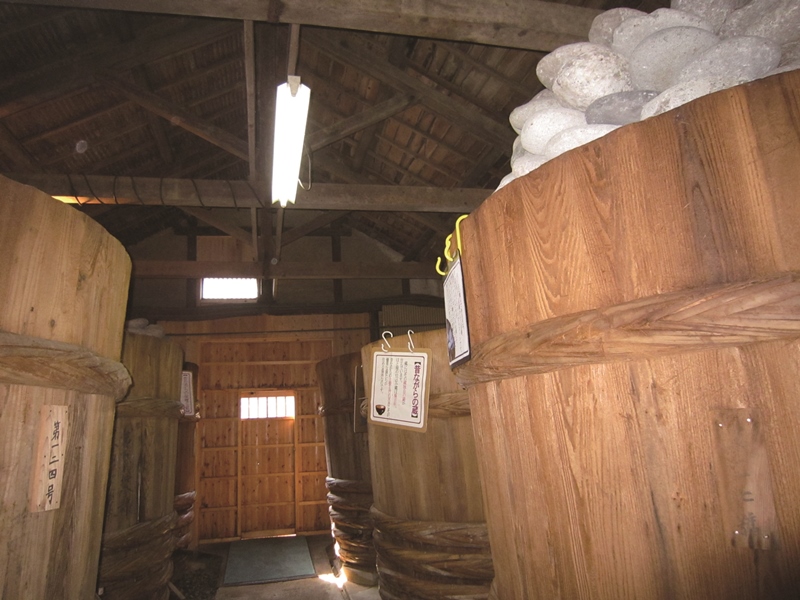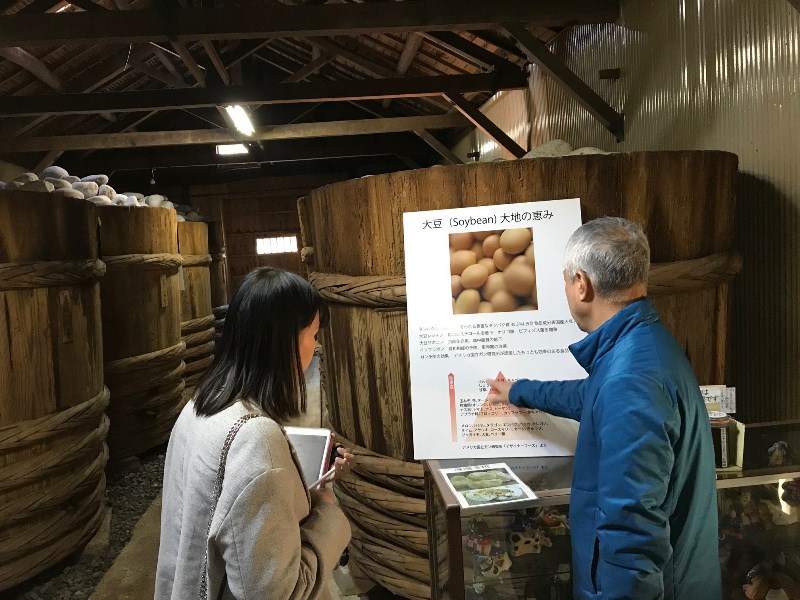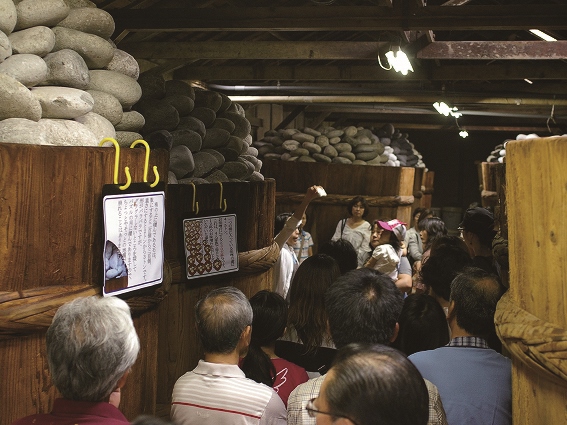Miso Park
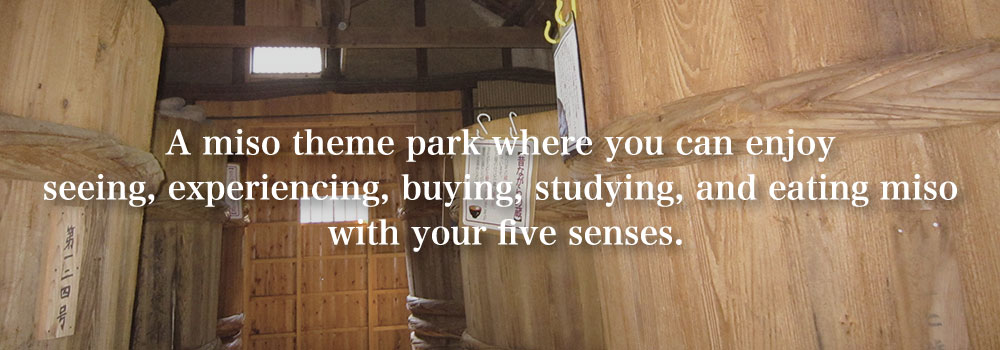
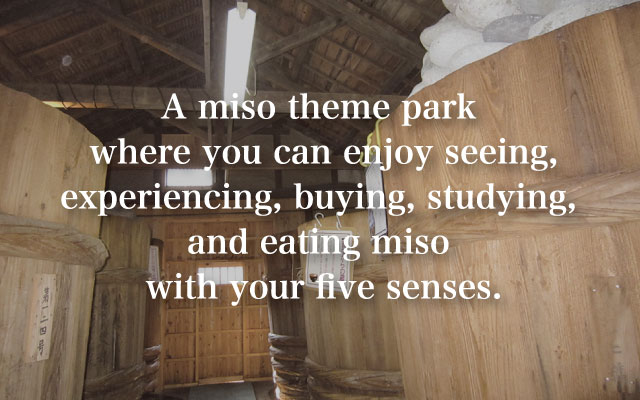
General Overview
Toriyama Denbei, a descendant of the chamberlain of Nishio Castle, Toriyama Ushinosuke, founded the Toriyama business in Nishio’s Honmachi upon becoming a chōnin townsman in mid-1700. Initially, he was a money changer and traded in hinaningyo dolls. In the late Edo period (1861), the fourth generation descendants of the Denbei family switched to making miso soy sauce, starting a tradition which continues to this day.
In 2009, the 9th generation descendants opened its miso making facilities to the public. At our Misopark facility, you can see a 180 cm tall wooden vat that has been used to make miso for 100 years. Self-guided sightseeing tours are available free of charge, a guided tour and an introductory course to making miso require a reservation.
We offer many hands-on classrooms (reservation fees required) where visitors can learn more about miso, condiments, and local ingredients – for example our workshops on combining miso with other foods, or on making miso maru soup balls, dressings, tsukemono pickles, cheese and more. Also, Misopark features our own restaurant, a shop, and a 100-year-old traditional Japanese home on site. We are about 8 minutes on foot from Nishio Station on the Meitetsu Nishio Line and provide a large parking lot, suitable for buses.
Products Available in Our Shop
In addition to our San-nen Shikomi Mame Miso which has been ripened for more than two summers, our Dengaku Miso with the beans left whole is also popular, along with the various kinds of miso used in the workshop on how to combine red and white miso.
Our assortment of products also includes tamari sauce, a by-product of the miso making process, white soy sauce in the Hekinan style, and various other seasonings.
San-nen Shikomi Mame Miso
Using only the Fukuyutaka soybean grown in Aichi prefecture and moshio seaweed salt, prepared in a wooden vat, ripened for two summers and aged for three years, this is our highest grade bean miso. It has a characteristic rich and deep flavor. Additive-free.
Ichi-nen Shikomi Mame Miso
Using only the Fukuyutaka soybean grown in Aichi prefecture and moshio seaweed salt, prepared in a wooden vat, this miso has been aged for one year. It is a light kind of miso that works with many kinds of dishes. Additive-free.
Mukashi Tamari
Traditional tamari soy sauce made only with whole soybeans and salt. Aged for an extra-long one and a half years. It has a condensed savory umami taste and goes well with grilled meats. Additive-free.
Shiro Shoyu
The lightest white soy sauce, made with 95 percent wheat. Ideal for dishes where the color of the ingredients is to be left unchanged. Used for egg dishes and stews.
Dengaku Miso
A simple blend of whole-bean miso with just mirin rice wine and kibizato brown sugar. It can be used for a wide range of Japanese or other dishes, such as Peking Duck, tofu, radish, casseroles, or fresh spring rolls. Additive-free.
Kabayaki no Tare
This kabayaki grill sauce is made with rich, aged tamari sauce and mirin made with the special production methods of the Mikawa region. Of course it is perfect with grilled unagi eel and teriyaki dishes. Additive-free.
Okazu Miso
A condiment made with bean miso and root vegetables that goes well with rice or side dishes. Additive-free.
Miso Dip
Sugar-free miso made with miso beans and rice, with added mirin and sake. Can be used to pickle raw vegetables or to marinate meat. Additive-free.
Shio Koji
A traditional ingredient made with sun-dried salt and home-made fermented rice malt.
Tamari Koji
Original Koji condiment made with home-made fermented rice malt and tamari made of 100% soybeans.
A Description of our Miso Brewery
The miso made here uses only 100 percent soybeans and salt. It contains abundant protein (up to 35 percent of the total weight) and many beneficial ingredients such as lecithin, saponin, and isoflavone. According to the American Cancer Society, soy is one of the best foods for the prevention of cancer.
Soybeans fermented for at least one year by Japanese koji salt are decomposed into amino acids by proteolytic enzymes produced by microorganisms. These amino acids are the basis of umami, a beneficial ingredient that can be absorbed directly as nutrients in the small intestine without having to be digested. Because of this, it is an effective way to improve the nutritional intake for the elderly or people in poor health.
The traditional dolls on display in the miso brewery have been collected here for seven generations. They are clay figures of warlords and princesses using the traditional techniques used to make roof-tiles.
Various experiences
The Dressing-making Workshop
Miso Maru Soup Balls Workshop
Miso Blending Workshop
In this workshop, you can sample red and white miso and combine them to create your own favorite blended miso. Various prepared mixtures are on sale at our shop, so you can purchase the miso blend of your choice.
Miso Brewery Tours
1. Walk-in Visits
| Hours | 10:00~15:00 |
|---|---|
| Number of people | for parties of one or more |
| Fee | free of charge |
2. Tour Group, with advance reservation
| Hours | Desired time within business hours |
|---|---|
| Number of people | 10 to 40 people |
| Fee | free of charge |
| Remarks | *Please call us to make a reservation one week in advance. |
3. Miso Experience Tour, reservation required
| Hours | Available from 14:00 in the afternoon requires about 30 minutes *Groups of ten or more can arrange tours at a different time. |
|---|---|
| Number of people | Available for groups of 4 to 30 over six years old. |
| Fee | 100 yen per person |
| Fun surprise included! | Japanese booklet ‘Miso ga dekiru made’ on how miso is made (one per family). Paying participants will receive a 50g sampler of additive-free kake miso and a 100 yen discount voucher for products in our shop. |
| Remarks | *Not available during O-bon and New Year holidays and in times of staff shortage. *Please call us to make a reservation one week in advance. |
Other Information
Our facilities also feature two restrooms, clearly marked emergency exits, a workshop hall, miso storehouse, and a museum.
